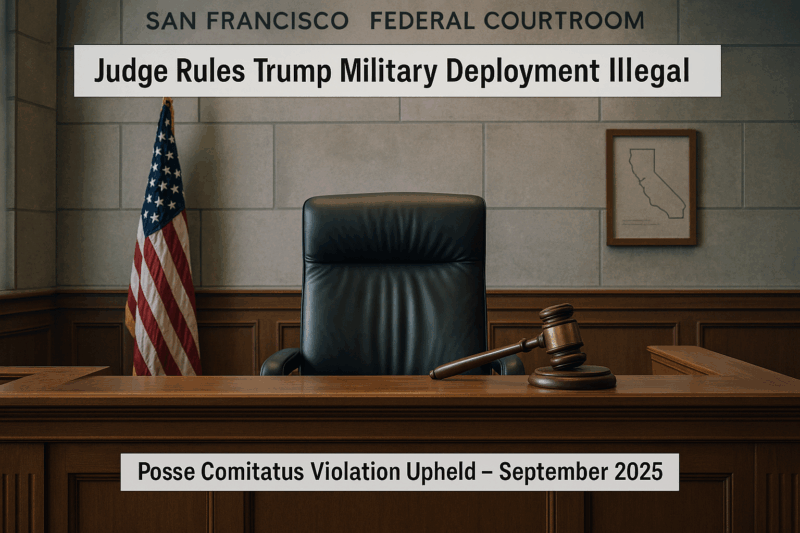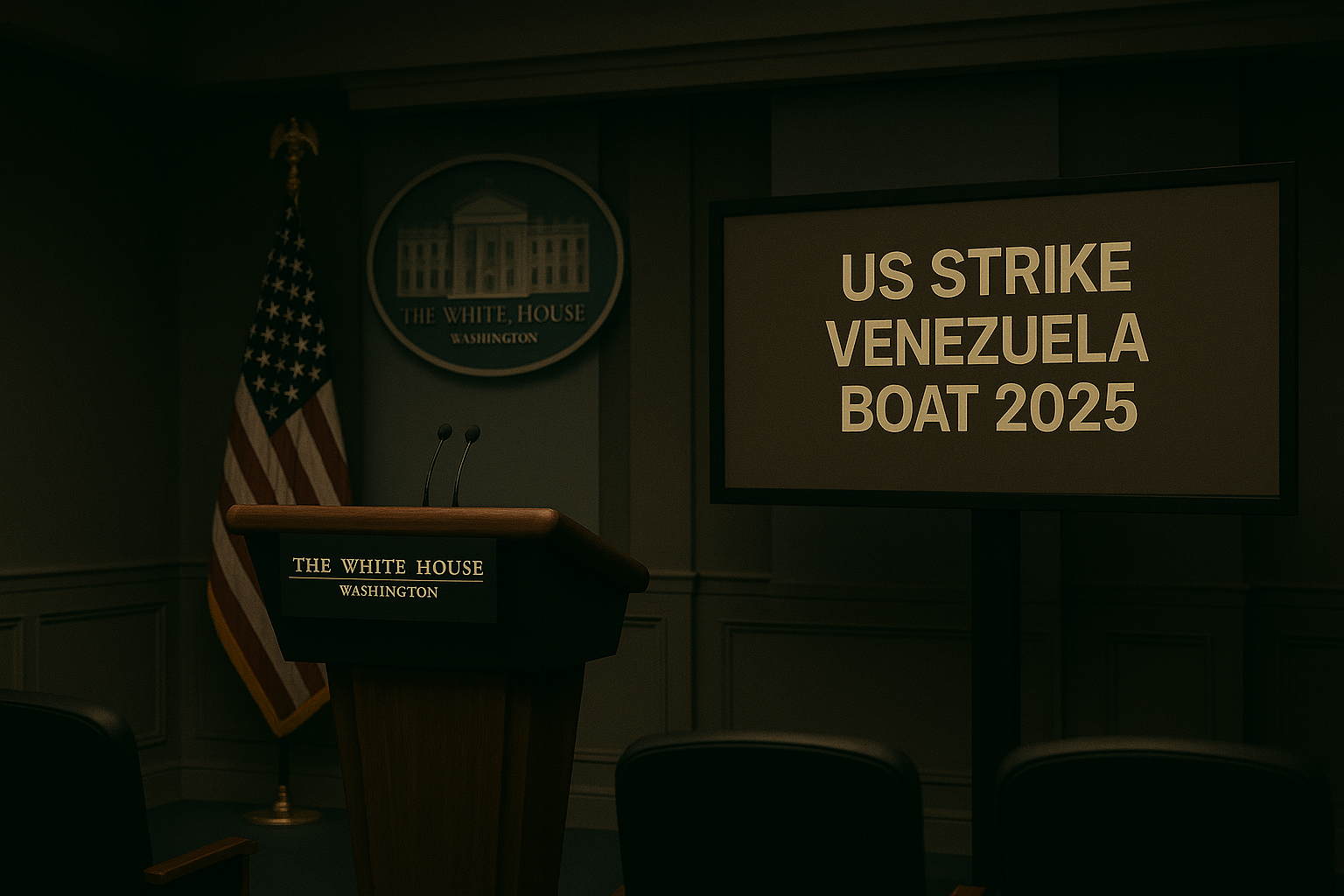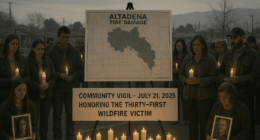A federal judge in San Francisco has declared President Donald Trump’s military deployment of California National Guard and U.S. Marines to Los Angeles illegal, citing a Posse Comitatus violation. On September 2, 2025, U.S. District Judge Charles Breyer issued a 52-page ruling barring troops from aiding civilian law enforcement, such as immigration raids, across California. This judge ruling illegal marks a significant win for Governor Gavin Newsom, who sued to halt the deployment, but experts warn an appeal could reshape federal authority. The decision highlights an ongoing state-federal dispute and raises 2025 election concerns about military overreach.
Human Toll
The Trump military deployment, involving 4,000 California National Guard members and 700 Marines since June 2025, has unsettled Los Angeles communities. Protests against immigration raids turned tense, with troops in protective armor setting up perimeters and controlling crowds, actions deemed a Posse Comitatus violation. Residents, particularly in areas like MacArthur Park, felt intimidated, with Mayor Karen Bass calling the deployment an “invasion.” The continued presence of 300 troops, extended through November 2025, raises fears of voter suppression in California’s special congressional election, amplifying 2025 election concerns.
Facts
The Posse Comitatus Act of 1878 prohibits the military from performing civilian law enforcement tasks like arrests, searches, or crowd control without congressional approval. Judge Breyer ruled that the Trump administration’s use of troops for traffic blockades and protest management violated this law, rejecting claims that troops were only protecting federal agents. The California National Guard, federalized against Newsom’s objections, engaged in actions like patrolling MacArthur Park, which Breyer called “systematic” violations. The ruling, paused until September 12, 2025, allows the administration to appeal but limits troops to guarding federal property.
Climate Context
This judge ruling illegal unfolds amid a heated state-federal dispute, with California’s progressive leadership clashing against Trump’s aggressive immigration policies. The deployment, sparked by protests over ICE raids, reflects broader tensions over executive power, especially as Trump threatens similar actions in cities like Chicago and Washington, D.C. The ruling’s timing, close to the 2025 election, fuels debates about militarization and democracy, with Newsom accusing Trump of creating a “national police force” to suppress dissent, a charge echoed by civil rights groups.
What Lies Ahead
The Trump administration is expected to appeal to the 9th Circuit Court of Appeals, which previously overturned Breyer’s June ruling on troop federalization. A reversal could grant Trump broader authority to deploy troops nationwide, potentially setting a precedent for future administrations. Legal experts warn this state-federal dispute could redefine the Posse Comitatus Act’s scope, especially if the Supreme Court intervenes. California’s push to regain control of its National Guard continues, with implications for 2025 election concerns and state sovereignty.
Conclusion
The judge ruling illegal against Trump’s military deployment underscores the Posse Comitatus violation and protects California’s autonomy in a contentious state-federal dispute. By limiting the California National Guard’s role, the decision curbs executive overreach, but an appeal could shift the balance. As 2025 election concerns grow, this ruling serves as a critical check on militarization, ensuring legal boundaries safeguard democratic principles.






